Projects
Adaptive Education
To the project browser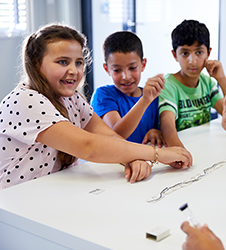
MultiDynAssess-India
The project designs, implements, and evaluates multilingual dynamic assessment (DA) in Indian primary government schools where English is taught in a context characterised by high sociolinguistic diversity and widespread code-mixing practices. It investigates how multilingual versus English-only DA affects Grade 4 students’ language and content learning over time, drawing on classroom observations and a longitudinal comparison with traditional static assessment in schools in New Delhi and Guwahati. By aligning assessment with learners’ full linguistic repertoires, the project aims to promote equity in education and offers implications for multilingual assessment practices in India and other linguistically diverse contexts in the Global South.
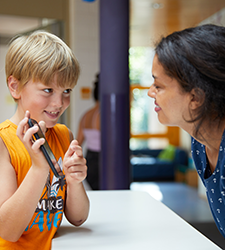
CHAT2TRANSITION
The project examines the emergence and consequences of educational decisions at the transition from primary to secondary school. It focuses on improving the information available to families and teachers. A multilingual chat assistant for families and a reflection program for teachers aim to reduce social and migration-related inequalities in educational outcomes.
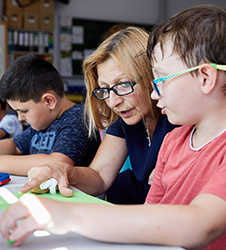
PRISMA
Working memory is central to school learning and is shaped by teacher–child relationships. Previous research has mainly focused on differences between children, although performance and relationships also vary substantially within the same child. Our project examines how these daily fluctuations affect short-term learning and long-term developmental pathways.
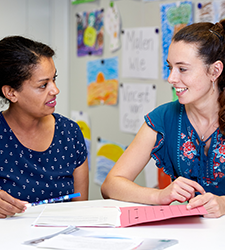
TeWiPrax
In the TeWiPrax project, researchers and teachers from the group „Sprachförderung/Mehrsprachigkeit“ of the “Campusschulen” program collaboratively develop and test materials that support secondary school students in understanding scientific texts. A particular focus is on academic and subject-specific vocabulary.

CLaB
This interdisciplinary research project investigates systematically Child Language Brokering (CLB) – informal translation practices by multilingual students – in German-speaking schools. Three sub-studies explore children’s and teachers’ perspectives on CLB, its interactional patterns, and its educational potential. The aim is to collaboratively develop approaches to translingual didactics and make them applicable to everyday school practice.
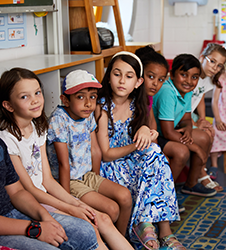
MeBis
MeBis is a project examining the handling of and attitudes towards multilingualism in children, parents and teachers in primary education settings, particularly concerning the use of several languages, for learning at home and reading out to children, but also during lessons with a particular focus on grammar and language comparisons.
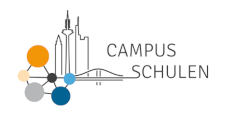
Campusschulen Frankfurt und Umgebung
How can educational researchers, school practitioners and (initial) teacher training in Frankfurt and the surrounding area collaborate and benefit from each other with a long-term perspective? In the Campus Schools Programme, we are establishing strong and sustainable collaborations at the interface between theory and practice and develop them further together.

meRLe
The meRLe project explores ways to promote German reading skills using multilingual-sensitive reciprocal teaching in primary education.

LONDI (former OnDiFoe)
The project LONDI aims at developing a web-based platform to support the identification and treatment of children with major difficulties in learning to read, spell, and/or calculate. The platform will provide evidence-based information, materials and tools for learning disabilities screening as well as for the individual diagnosis and remediation.

MORAL
The research project MORAL investigates the socio-moral development of children and adolescents with a strong focus on intergroup processes and social cognition. Another focus of the project is the training of educators and teachers regarding social exclusion among children and adolescents.